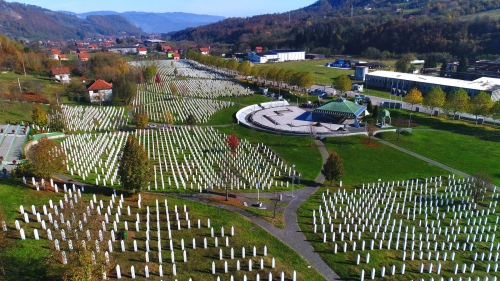Ceasefire in Sierra Leone
Talks between warring factions from Sierra Leone in the Togolese capital of Lome, ended Tuesday with an agreement for a ceasefire. Although direct talks between President Ahmad Tejan Kabbah and rebels of the Revolutionary United Front (RUF) do not begin until May 25, Kabbah and RUF leader Foday Sankoh have signed an agreement calling for a cessation of hostilities set to begin May 24. The ceasefire includes a return of prisoners and a call for the deployment of United Nations (U.N.) military observers to ensure peace. The landmark agreement appears to be a sincere effort to end a prolonged civil war.
If the talks prove successful, they will end a bloody conflict which began in 1991 when Sankoh's RUF was formed in alliance with Liberia's National Patriotic Front under current Liberian President Charles Taylor. The RUF fought successive guerilla wars against the governments of Sierra Leone, interrupting the relative national stability that had reigned since independence from Britain in 1961. According to BBC Africa reporter Caroline Hawley in a May 19 BBC news report, the rebel movement probably has its roots in government corruption and rural resentment over the concentration of diamond wealth among Freetown elites. But the movement itself, Hawley says, "has no clear political ideology."
When Kabbah was elected President in 1996 in the country's first multi-party elections, the RUF joined forces with the Armed Forces Revolutionary Council (AFRC), a military junta of former government soldiers. In May 1997, the RUF led a successful coup that forced Kabbah into exile in Guinea, after which it established military rule. In February 1998, a Nigerian-led West African intervention force, Ecomog, drove the rebels out of the capital and cleared the way for the return of Kabbah. Ecomog currently maintains a peacekeeping force in Sierra Leone, led by a contingent of 10,000 - 15,000 Nigerian troops. However, Ecomog has been unable to defeat the rebels and was nearly defeated itself in January of this year when rebels invaded Freetown before being driven back by the pro-Kabbah forces.
President Kabbah, who has no military of his own, relies heavily on international support. A former U.N. worker himself, Kabbah has called on the U.N. to help alleviate tension and to protect innocent civilians from rebel atrocities. Rebel forces have been widely accused of a campaign of horror, targeting civilians and resulting in execution, mutilation, rape, beatings and arson. Despite Kabbah's tenuous position and the humanitarian disaster in Sierra Leone, no offers of U.N. military assistance have been forthcoming. Kofi Annan has agreed to possible U.N. intervention, but only after a lasting peace can be established in the country.
Nigeria's recent elections, that will bring President-elect Obasanjo to power on May 29, threaten to further undermine Kabbah's government. In the pre-election campaign, Obasanjo joined his opponent in condemning Nigeria's costly involvement in Sierra Leone, an endeavor that has become known as "Nigeria's Vietnam." In accordance with public opinion, Obasanjo has promised a speedy troop withdrawal as soon as peace is established in Sierra Leone. Nigeria's withdrawal would incapacitate Ecomog efforts in the country, leaving Kabbah with nothing but his confidence in the RUF's desire for peace.
Kabbah has said he is willing to reconcile with the rebels in the interest of peace and has even agreed to grant permanent amnesty to Sankoh, who was imprisoned when Kabbah returned to power. But even if Sankoh seemed sincere in his overtures for peace at Lome, there is evidence of a split in the rebel alliance, factions of which might jump at the opportunity to overthrow Kabbah once Ecomog leaves. Two of Sankoh's top field commanders, Sam Bockarie and Johnny Paul Koroma, failed to attend a rebel conference in April to go over plans for a peace settlement. Bockarie is Sankoh's second in command, but in fact controls the majority of rebel maneuvers, according to the BBC.
The success of the ceasefire achieved in Lome depends on approval from rebel commanders in the field, a necessity that will most likely be in focus of the direct talks between Kabbah and the rebels scheduled for May 25. But even if rebel commanders such as Bockarie agree to the ceasefire, the larger question remains of whether it will be honored after the anticipated withdrawal of Nigerian troops.

















